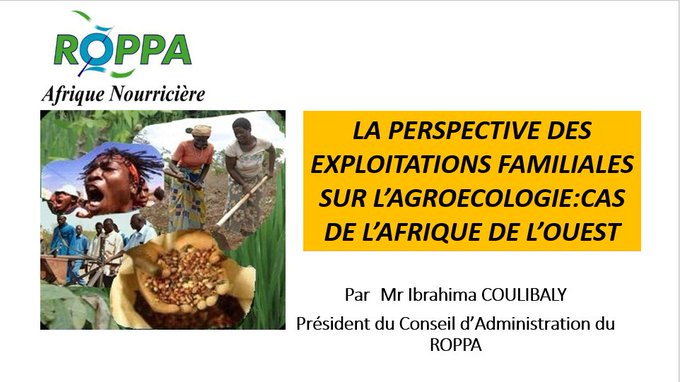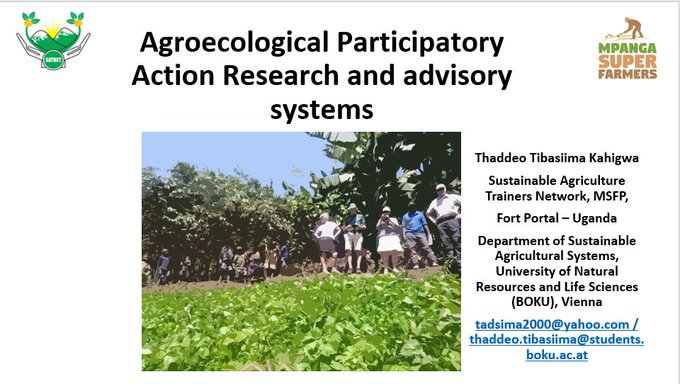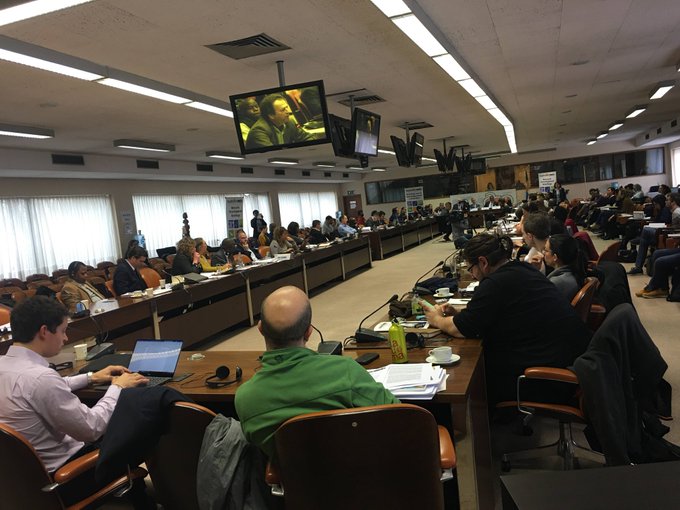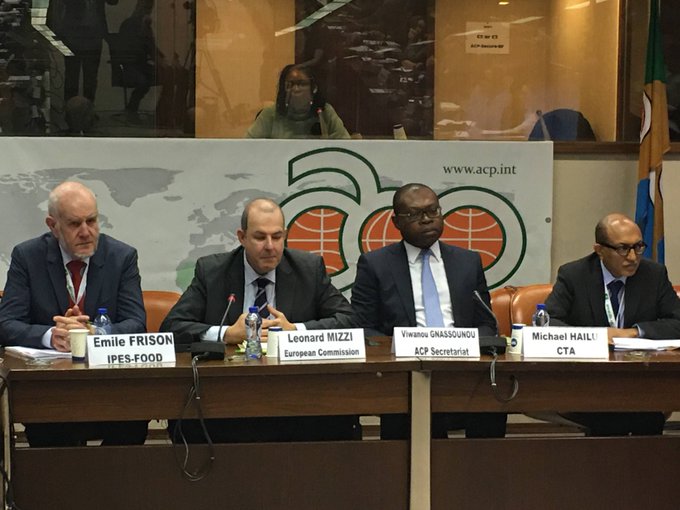15 January 2019. The briefing “Agroecology for Sustainable Food Systems” was organised by CTA, the European Commission/EuropeAid, the ACP Secretariat, CONCORD and IPES-FOOD
The briefing brought various perspectives and experiences on agroecological systems to support agricultural transformation. Experts presented trends and prospects for agroecological approaches and what it implies for the future of the food systems. Successes and innovative models in agroecology in different parts
of the world and the lessons learned for upscaling were discussed.
The audience consisted of ACP-EU policy-makers and representatives of the EU Member States, civil society groups, research networks and development practitioners, the private sector and international organisations based in Brussels as well as representatives from ACP regional organisations.
Note and Programme
Biodata of speakers
Twitter: Brussels briefing
The briefing brought various perspectives and experiences on agroecological systems to support agricultural transformation. Experts presented trends and prospects for agroecological approaches and what it implies for the future of the food systems. Successes and innovative models in agroecology in different parts
of the world and the lessons learned for upscaling were discussed.
The audience consisted of ACP-EU policy-makers and representatives of the EU Member States, civil society groups, research networks and development practitioners, the private sector and international organisations based in Brussels as well as representatives from ACP regional organisations.
Note and Programme
Biodata of speakers
Twitter: Brussels briefing
Introduction to the Briefing:
- Isolina Boto, Manager, CTA Brussels Office and Coordinator of the Briefings
- Introductory remarks: Viwanou Gnassounou, Assistant Secretary General, ACP Secretariat;
- Leonard Mizzi, Head of Unit, Devco C1, Food Security, Nutrition, Europeaid, European Commission;
- Emile Frison, Member, International Panel of Experts on Sustainable Food Systems, IPES-FOOD;
- Michael Hailu, Director, CTA.
This panel discussed concepts, trends and prospects for agroecological approaches and what it implies for the future of the food systems.
- From Uniformity to Diversity: A paradigm shift from industrial agriculture to diversified agroecological systems Emile Frison, Member, International Panel of Experts on Sustainable Food Systems
- Agroecology to meet the SDGs: Scaling-up Agroecology Initiative Ronnie Brathwaite, Senior Agriculture Officer, FAO
- How local application of agroecological principles can transform food systems Fergus L. Sinclair, Principal Scientist, World Agroforestry (ICRAF), Kenya
- Agroecology and the Right to Food Alejandra Morena, Right to Food and Nutrition, Capacity-Building Coordinator, FIAN
 Panel 2: Agroecology in practice: experiences and lessons learned
Panel 2: Agroecology in practice: experiences and lessons learned This panel presented some successes and innovative models in agroecology in different parts of the world and the lessons learned for upscaling them.
- The farmer’s perspective to agroecology: the case of West Africa Ibrahima Coulibaly, President, ROPPA
- Agroecology in the European agenda of sustainable development: Best practices Paola Migliorini, President, Agroecology Europe
- Agroecological participatory action research and advisory systems Tibasiima Kahigwa Thaddeo, Farmer Advisor on Agroecology, Uganda
- Promoting reforestation and agroforestry practices Mansour Ndiaye, Executive Director, APAF, Senegal
- Supporting climate-resilient agroecology in Malawi Ellen Matupi, President, Coalition of Women Farmers (COWFA)

Related
- 02/04/2019 Agroecology Infopool website launch
- 18/06/2019 1st International Conference on Agro-ecology Transforming Agriculture & Food Systems in Africa
- 26/02/2019 The Contribution of Organic Agriculture to the SDGs
- 05/04/2018 Agroecology, the Bold Future of Farming in Africa
- 05/04/2018 Second International Symposium on Agro-ecology
- 23/02/2017 AGROECOLOGY: the bold future of farming in Africa
Related:
 Related: AGROECOLOGY: the bold future of farming in Africa
Related: AGROECOLOGY: the bold future of farming in Africa
This 88 page illustrated book (2016) raises 15 case studies, showing how agroecology benefits Africa in terms of food and nutrition, livelihoods, restoration of biodiversity, knowledge and innovation, and climate change resilience.
- Publisher: Alliance for Food Sovereignty in Africa (AFSA) and Tanzania Organic Agriculture Movement (TOAM)
- Year: 2016
- Country/ies: Burkina Faso, Ethiopia, Ghana, Kenya, Malawi, Togo, Uganda, United Republic of Tanzania, Zimbabwe
- Full text available at: http://afsafrica.org/agroecology-the-bold-future-of-farming-in-africa/
- Content language: English
Related:
18/07/2019 - Agroecological and other innovative approaches for sustainable agriculture and food systems that enhance food security and nutrition
Full report can be downloaded here!
In this report, the HLPE explores the nature and potential contributions of agroecological and other innovative approaches to formulating transitions towards sustainable food systems (SFSs) that enhance FSN. The HLPE adopts a dynamic, multiscale perspective, focusing on the concepts of transition and transformation. Many transitions need to occur in particular production systems and across the food value chain to achieve major transformation of whole food systems. Both incremental transitions at small scales and structural changes to institutions and norms at larger scales need to take place in a coordinated and integrated way in order to achieve the desired transformation of the global food system
Related:
Interview with Emile Frison. He joined the International Panel of Experts on Sustainable Food Systems. "There is an urgent need to alert policy makers to the high risks related to short-term thinking and concentration of power in the hands of fewer, large-scale retailers and corporate agri-businesses." See: From Uniformity to Diversity




No comments:
Post a Comment